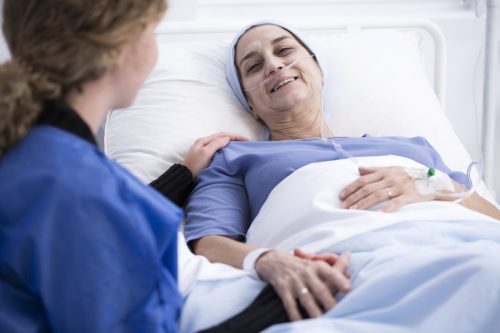
A new study found that autologous fecal microbiota transplantation (auto-FMT) in cancer patients can help reestablish the patients’ gut microbiota diversity and composition.
Intestinal microbiota become damaged by antibiotics in patients undergoing allogeneic hematopoietic stem cell transplantation (allo-HSCT). While the use of antibiotics is necessary for clinical outcomes, the loss of certain beneficial microbes is associated with greater mortality, according to the study.
Researchers conducted a randomized, controlled clinical trial that included 25 allo-HSCT patients, who either received auto-FMT treatment (n = 14) or did not (n = 11). Researchers froze fecal matter from patients prior to allo-HSCT and then conducted auto-FMT following stem cell engraftment.
“This important study suggests that clinical intervention using auto-FMT [autologous fecal #microbiota transplantation] can safely reverse the disruptive effects of broad-spectrum antibiotic treatment,”#Antibiotics #GutBacteria #FecalTransplants https://t.co/0Q8ZbOnBxp
— BioNews Central (@bionewscentral) September 27, 2018
“Changes in gut microbiota diversity and composition revealed that the auto-FMT intervention boosted microbial diversity and reestablished the intestinal microbiota composition that the patient had before antibiotic treatment and allo-HSCT,” the researchers wrote.
“This important study suggests that clinical intervention using auto-FMT can safely reverse the disruptive effects of broad-spectrum antibiotic treatment,” said Dr. Anthony S. Fauci, director of the National Institute of Allergy and Infectious Diseases, an arm of the National Institutes of Health (NIH). “If validated in larger studies, this approach may prove to be a relatively simple way to quickly restore a person’s healthy microbiome following intensive antimicrobial therapy.”
Autologous fecal microbiota transplantation (auto-FMT) is a safe and effective way to replenish beneficial gut bacteria in #cancer patients who require intense antibiotics during allogenic hematopoietic stem cell transplantation. |#NIH https://t.co/vO6cJRSUwE
— Susan H. Lin, ScD, OTR/L, FAOTA, FACRM (@SusanLinOT) September 27, 2018
According to the NIH, the researchers are still monitoring the patients to see if auto-FMT improves patient outcomes.
The study authors concluded, “These results demonstrate the potential for fecal sample banking and posttreatment remediation of a patient’s gut microbiota after microbiota-depleting antibiotic treatment during allo-HSCT.”
It’s Not Yet Clear How to Boost the Microbiome. But Diet Is the Best Bet
Exercise Shown to Increase Healthy Bacteria Population in Gut
Sources: NIH, Science Translational Medicine







 © 2025 Mashup Media, LLC, a Formedics Property. All Rights Reserved.
© 2025 Mashup Media, LLC, a Formedics Property. All Rights Reserved.